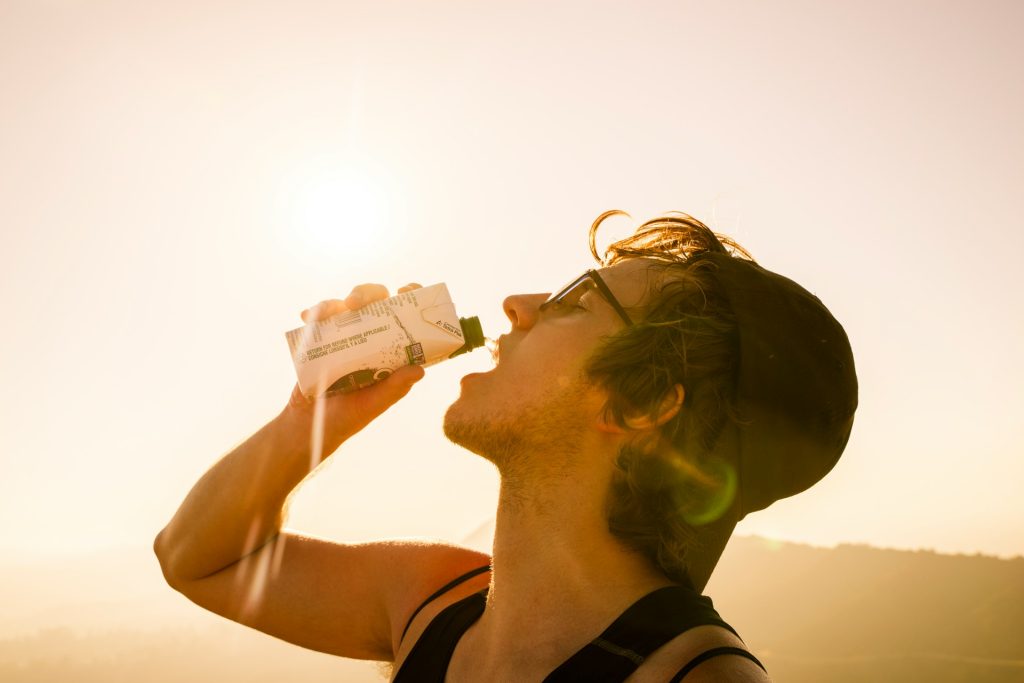Table of Contents
That healthy smoothie you’re sipping? It might be aging you right now. The shocking truth is that many of our everyday routines are silently accelerating the aging process, and most of us have no idea. Many times our daily routine is what speeds up the process, only slight changes can help you get to your normal routine. Stress is the most common problem behind this and everyone is stressed nowadays.
The Morning Routine That’s Adding Years to Your Face
Your morning sets the tone for how your body ages throughout the day. That hurried cup of coffee on an empty stomach? It’s triggering a cortisol spike that breaks down collagen. The warm shower that feels so good? It’s stripping natural oils from your skin, creating micro-damage that accumulates over time.
The average person touches their face 16 times per hour without realizing it. Each touch transfers bacteria and creates micro-inflammations that accelerate aging. And that quick morning scroll through social media? The blue light exposure increases oxidative stress in skin cells, leading to premature wrinkles.
Hidden Sugar Bombs Destroying Your Youth
We all know sugar isn’t great for our waistlines, but few realize it’s catastrophic for keeping a youthful appearance. The “healthy” granola bar in your bag likely contains as much sugar as a candy bar. When consumed, sugar molecules attach to proteins in your skin through a process called glycation, creating advanced glycation end products (AGEs) that literally age you.
That fruit juice you drink for vitamins? It delivers a concentrated sugar hit without the fiber to slow absorption. Your afternoon yogurt? Unless it’s plain, it probably contains more sugar than ice cream. These daily sugar bombs trigger inflammatory responses that break down elastin and collagen—the very proteins keeping your skin plump and youthful.
The Sitting Death Trap
Your comfortable desk chair is aging you faster than sunbathing. The average office worker sits for 15 hours daily between work, commuting, and evening relaxation. This prolonged sitting slows circulation and reduces oxygen delivery to cells, accelerating cellular aging.
When you sit for extended periods, your body’s production of lipase (a fat-burning enzyme) drops by 90%. The resulting metabolic slowdown ages not just your body but your brain. Studies show that people who sit for more than 8 hours daily have telomeres (the protective caps on DNA strands) that are shorter by the equivalent of 8 years of aging.
Sleep Patterns That Age You Overnight
That late-night Netflix binge is etching wrinkles into your face. During sleep, your body repairs daily damage and produces growth hormone—essential for tissue repair and youthful skin. Missing even 30 minutes of needed sleep increases cortisol production by 37%, triggering inflammation and accelerating aging.
The position you sleep in matters too. Side and stomach sleepers create “sleep wrinkles” from pressing their faces against pillows night after night. These eventually become permanent fixtures. Sleeping with your face against a cotton pillowcase pulls moisture from your skin and creates friction that breaks down collagen over time.
Stress: The Silent Age Accelerator
The deadline stress you brush off? It’s changing your cells at a genetic level. Chronic stress, even at low levels, shortens telomeres and accelerates biological aging by up to 10 years. When you’re stressed, your body diverts resources away from repair and regeneration to deal with the perceived threat.
The average person experiences 50 micro-stressors daily without consciously registering them. Each triggers small cortisol releases that, when accumulated, significantly accelerate aging. Studies show that people with high stress levels physically age approximately 3 years faster than their calendar age.
Dehydration: Aging You Sip by Missed Sip

Think you’re drinking enough water? Think again. When your body is just 2% dehydrated, cognitive function drops by 13%, metabolism slows, and skin cells can’t effectively eliminate toxins. The results show on your face within hours as more pronounced fine lines and dullness.
Most people mistake thirst for hunger, reaching for food instead of water 63% of the time. This not only adds calories but misses the opportunity to hydrate cells. Your afternoon energy crash likely isn’t a need for caffeine but severe cellular dehydration. By the time you feel thirsty, your body is already significantly dehydrated.
Digital Devices: The Modern Aging Accelerant

Your smartphone addiction adds years to your appearance in multiple ways. The constant downward gaze creates “tech neck” – premature wrinkles and sagging skin from the repeated folding of neck tissues. The blue light emitted penetrates deeper than UV rays, causing oxidative damage to skin cells.
Beyond physical effects, digital devices fracture your attention span into 8-second intervals (shorter than a goldfish), preventing the deep focus that protects brain cells from premature aging. The average person checks their phone 96 times daily, each interruption triggering micro-stress responses that accumulate as accelerated aging.
Weekend Habits That Undo Your Anti-Aging Efforts

That weekend cocktail ritual? Just two drinks impairs your liver’s ability to remove toxins for up to 72 hours, resulting in cellular damage and visible aging. The Sunday brunch? The combination of refined carbs, sugars, and inflammatory oils creates an aging cascade that lasts well into your work week.
Even your weekend sleep pattern contributes to accelerated aging. Sleeping in on weekends disrupts your circadian rhythm, which controls over 40% of your genes, including those regulating aging and cellular repair. This “social jet lag” accelerates biological aging by up to 4 years in regular practitioners.
Take Back Your Youth Starting Today
These habits might be aging you, but the damage isn’t irreversible. Small, consistent changes create compound effects. Replacing just one aging habit weekly can reverse visible signs of aging within 30 days. Your body wants to repair itself—you just need to stop sabotaging its efforts.

Hi! I’m Dave, a longtime biohacker focused on natural ways to improve health and performance. My work revolves around analyzing the science behind cognitive enhancers, nutrition, and longevity strategies. I’m particularly interested in natural nicotine products and their effects on focus and energy. Everything I share is based on research and real-world application, ensuring practical, reliable insights. Please note, none of the information shared here is medical advice.




